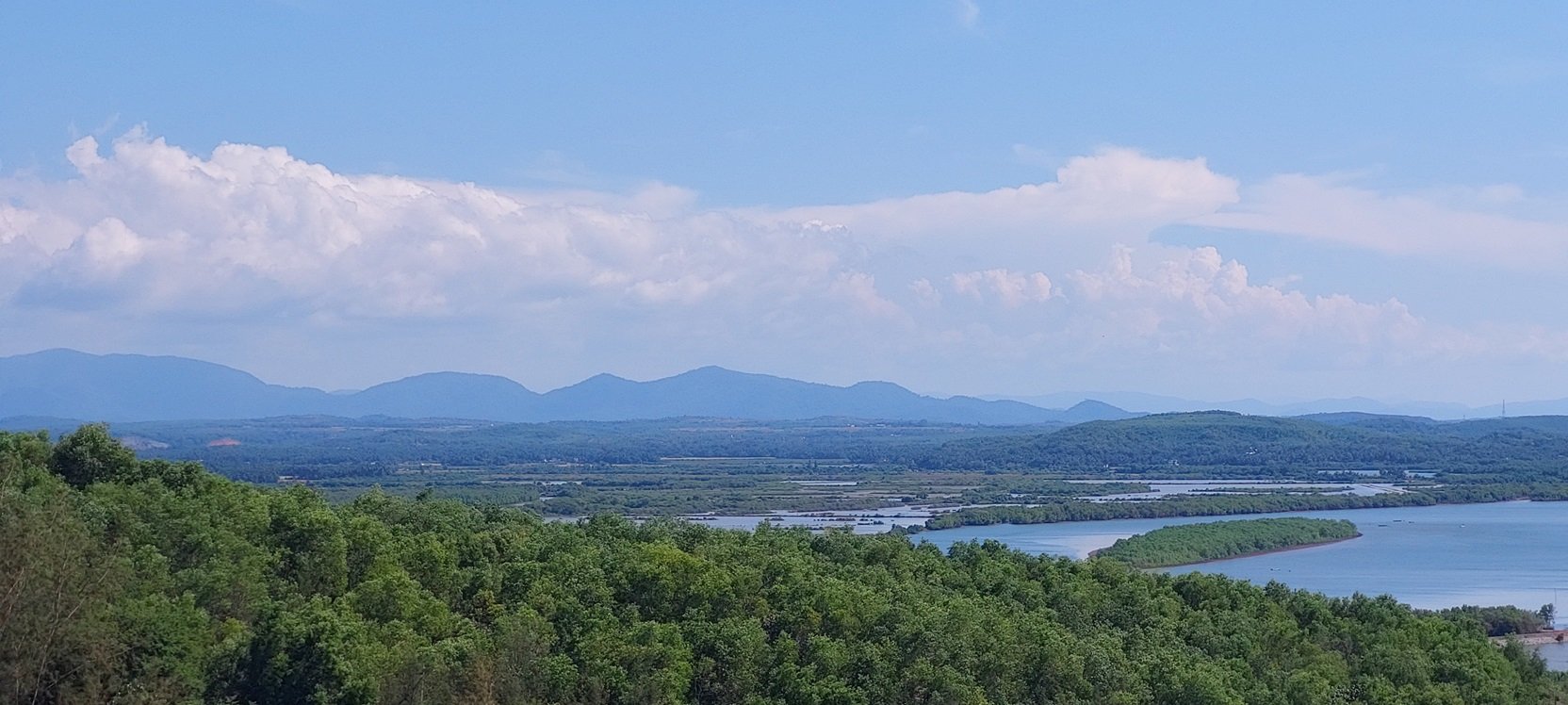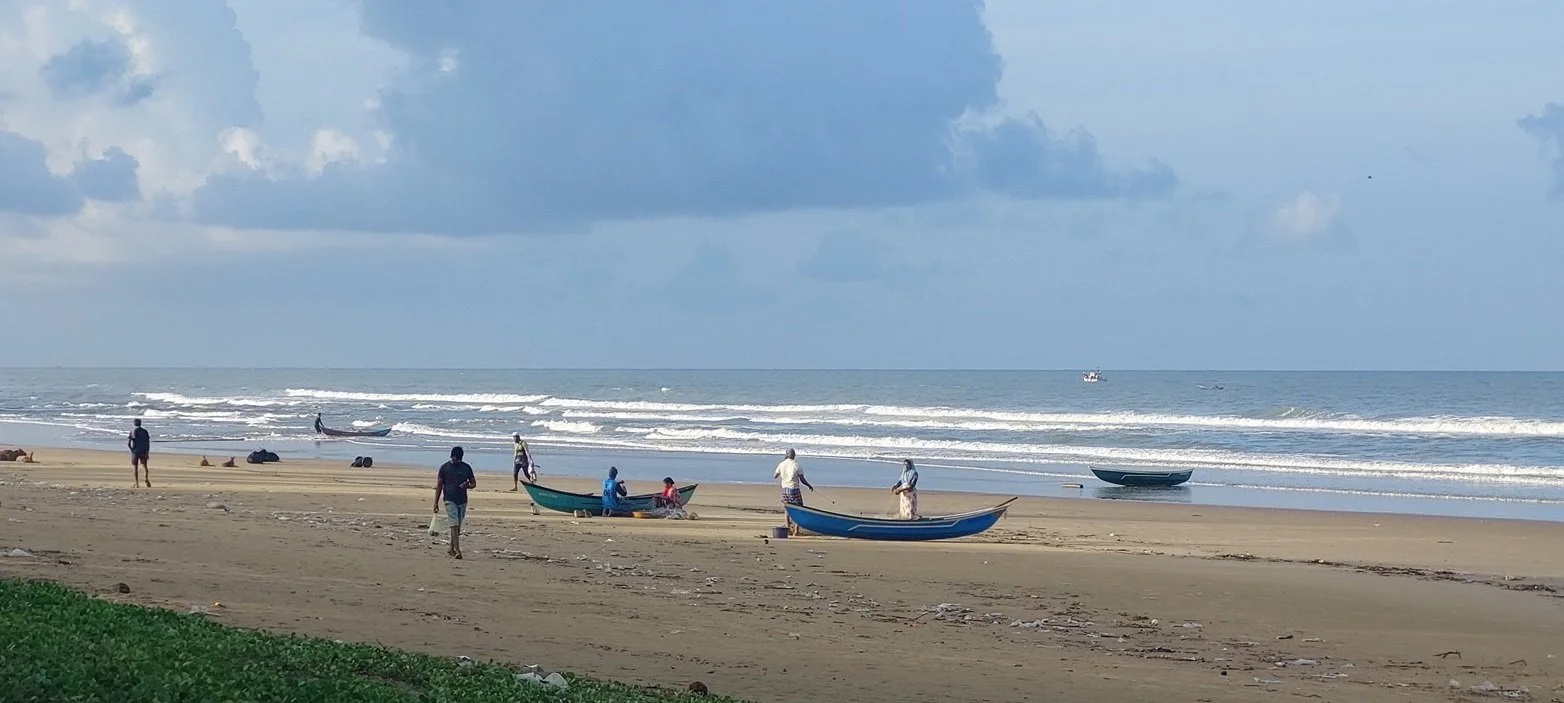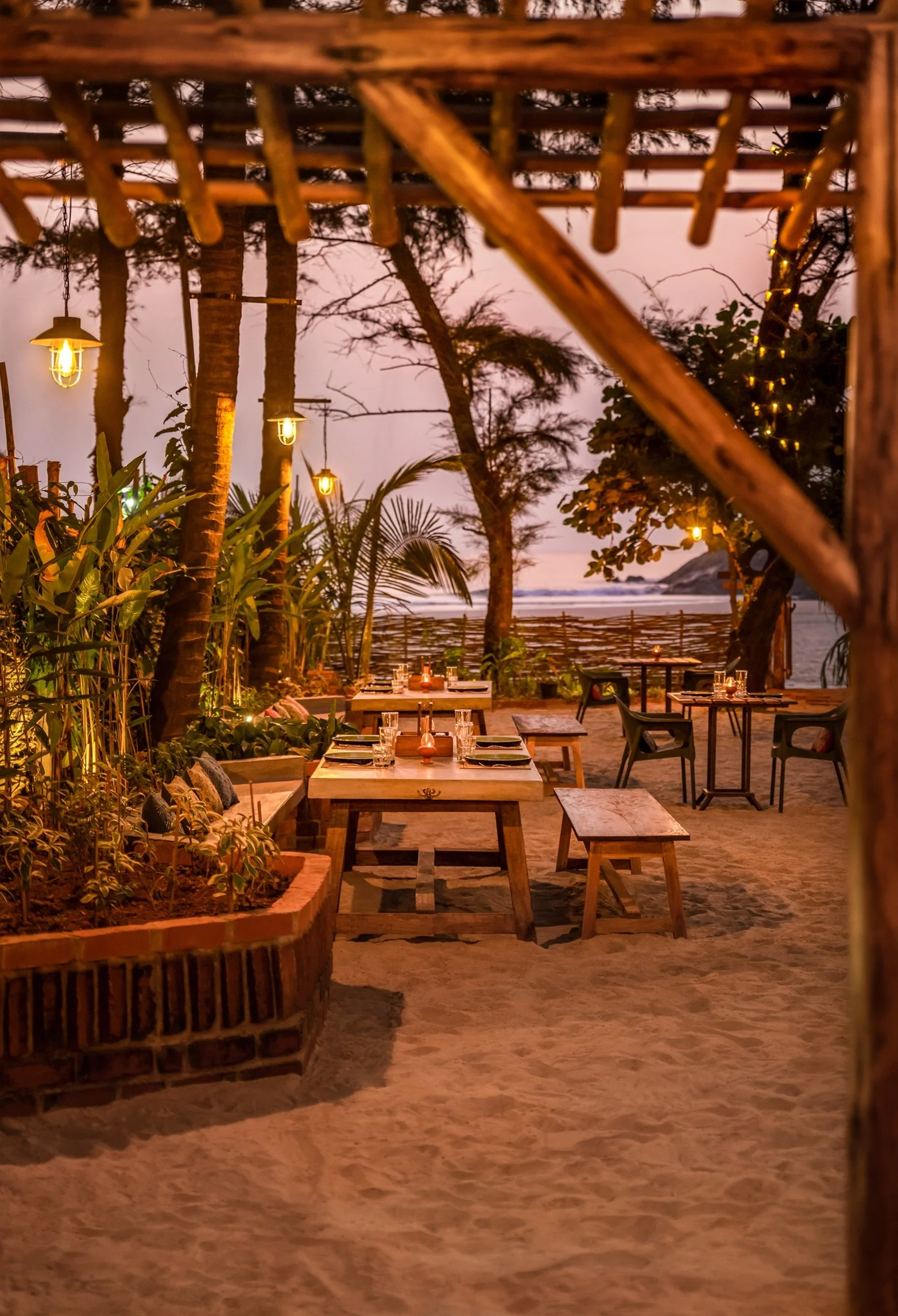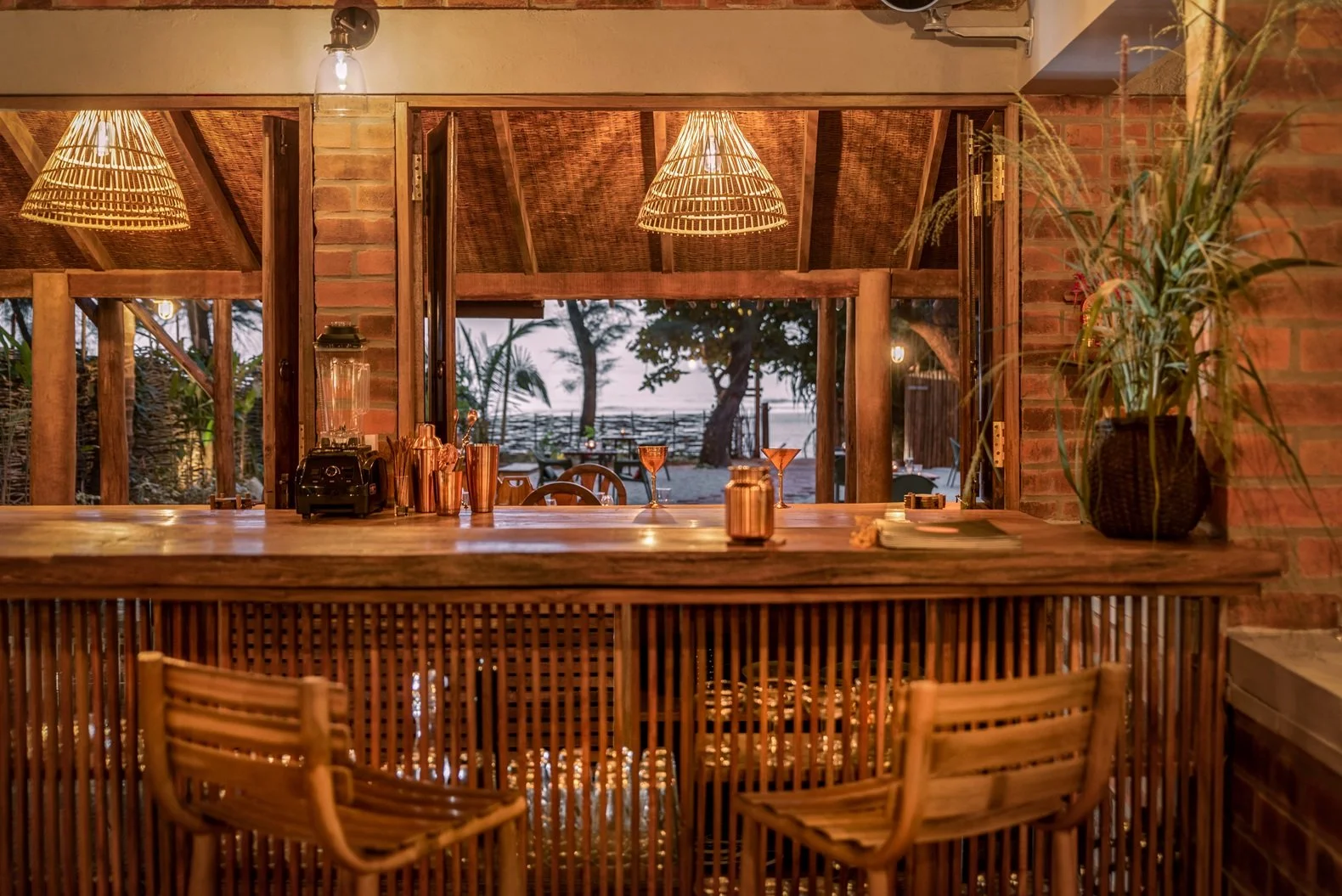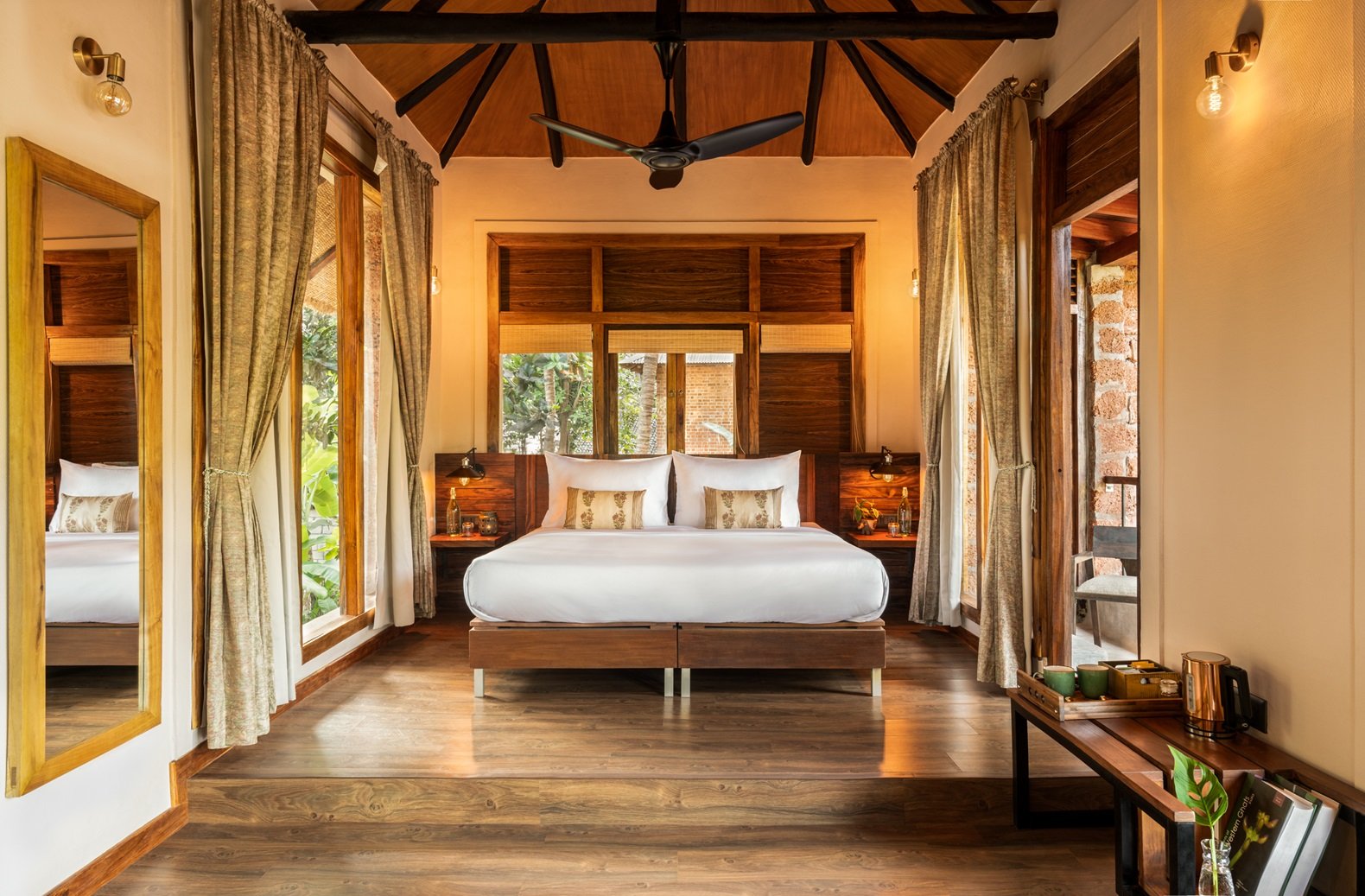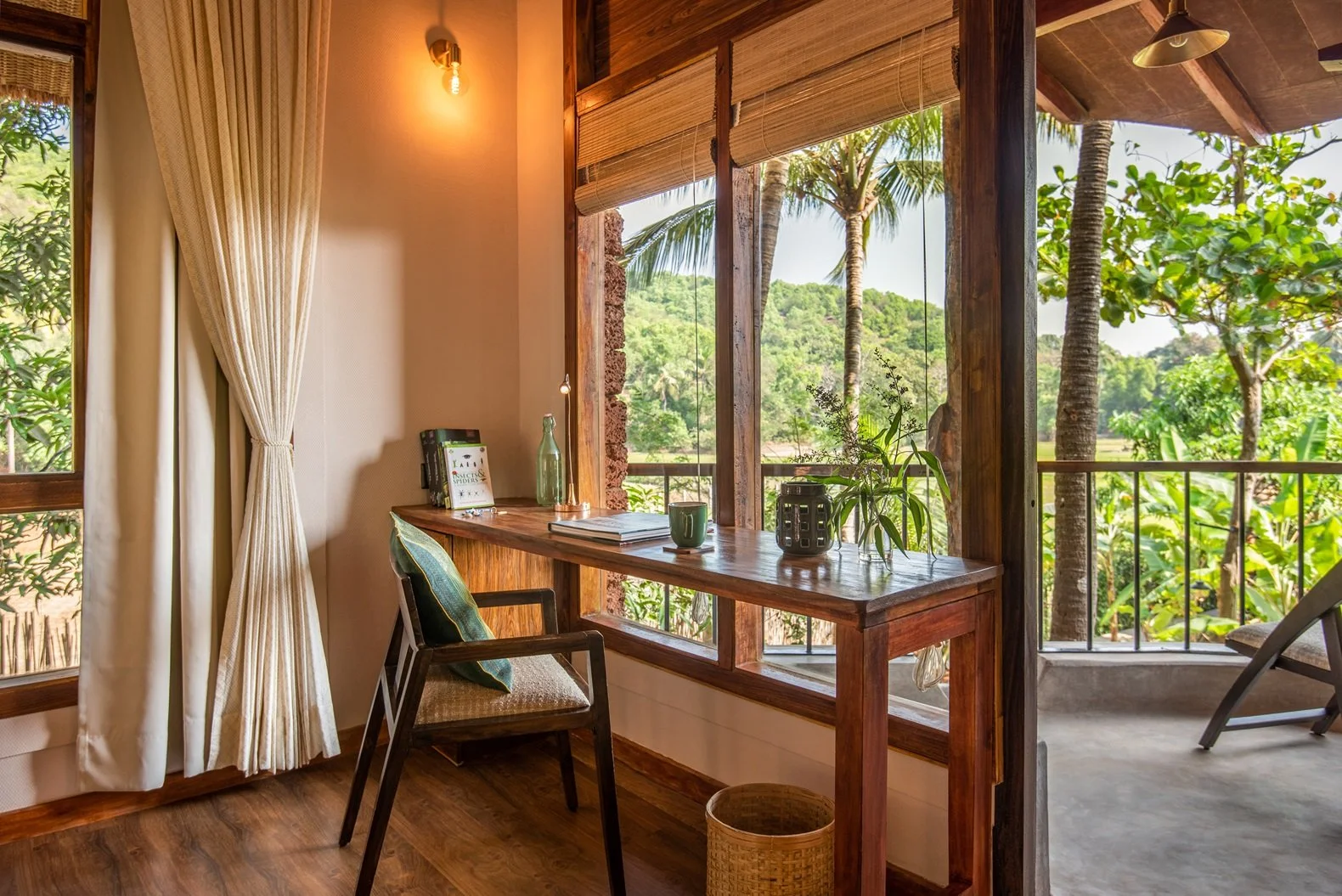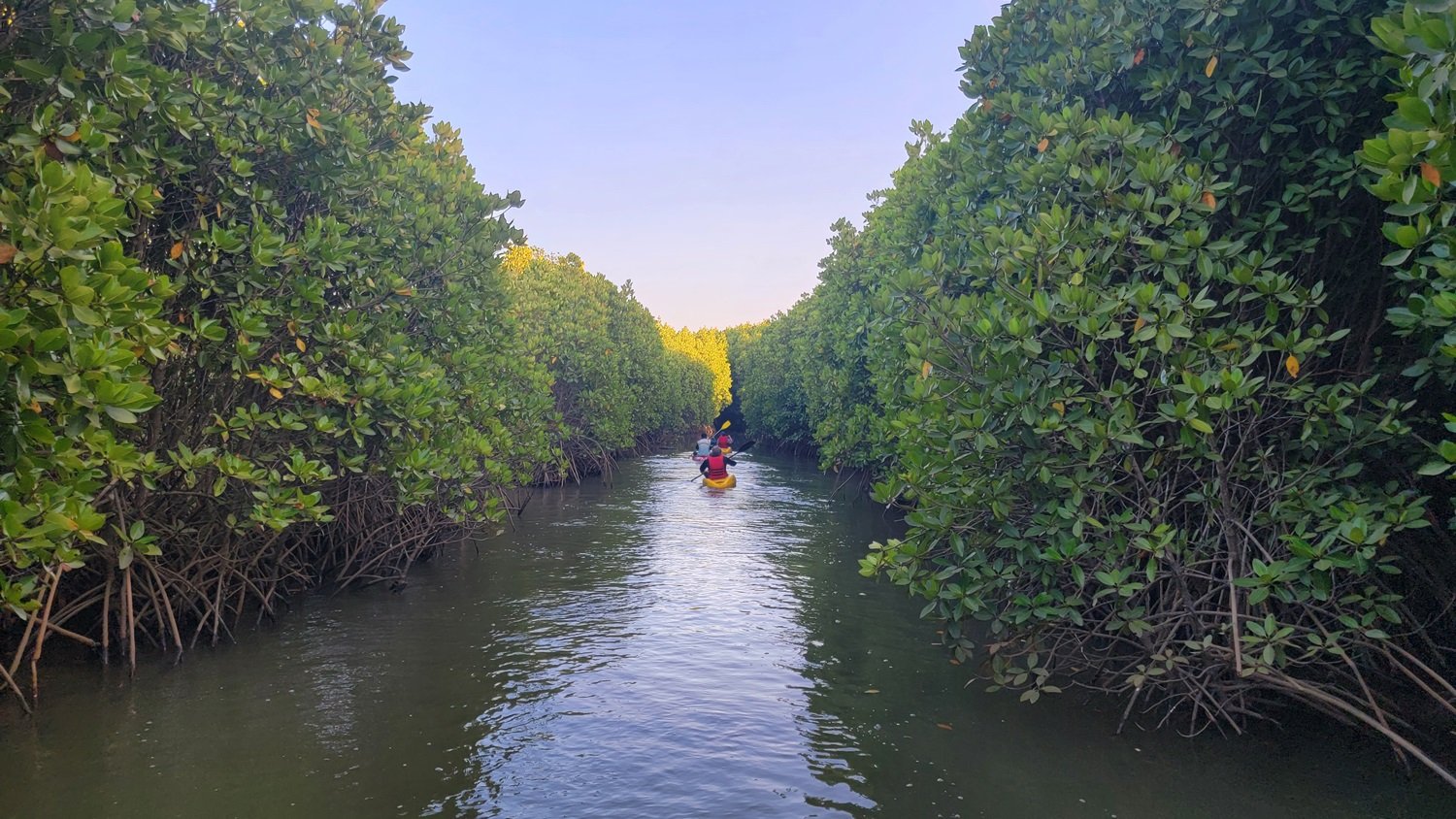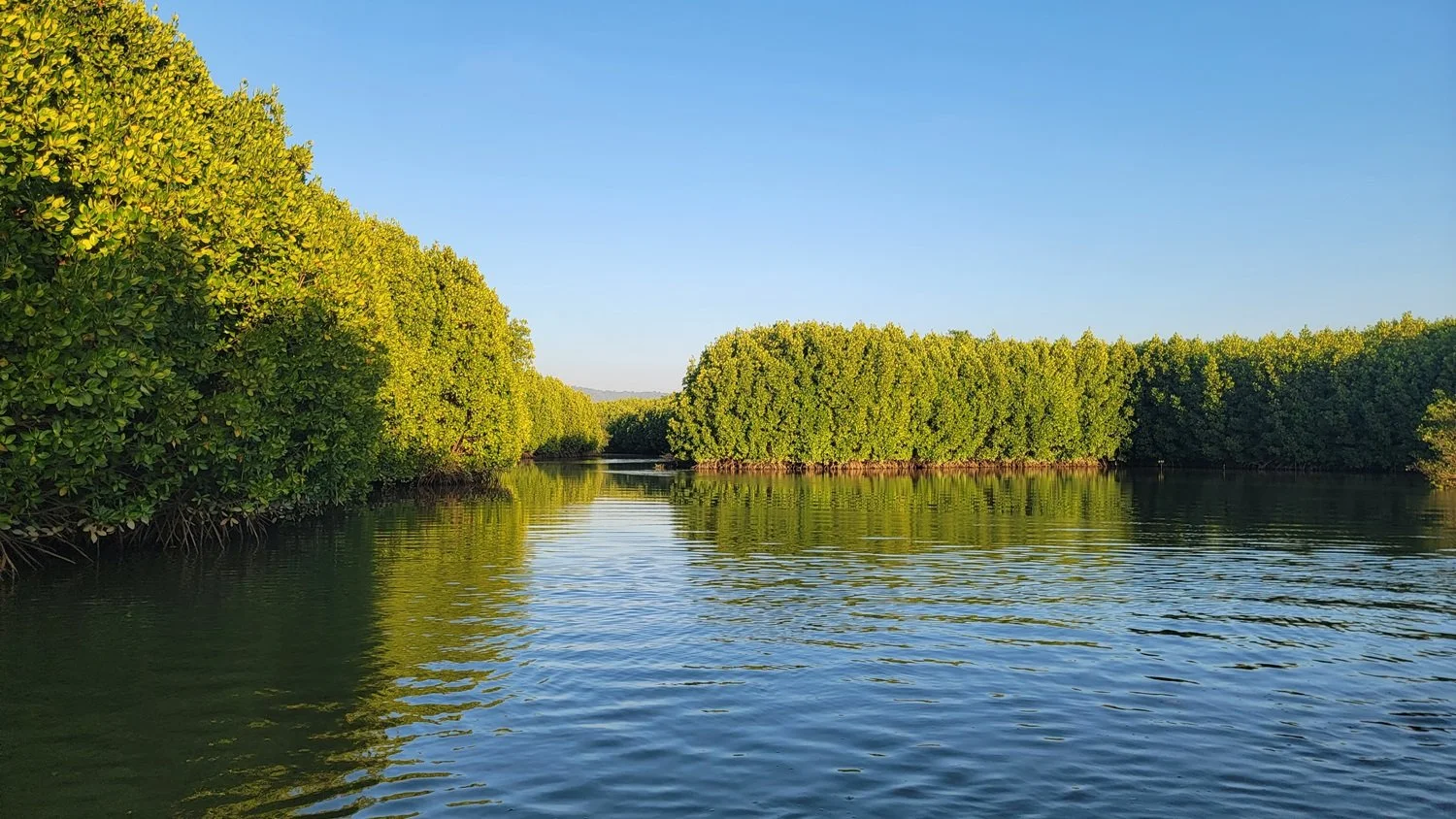Be One With Nature at Panchabhuta Retreat
As old as the Western Ghats—a mountain range that stretches 1,600 km along the western coast of the Indian peninsula—and possibly older than the majestic Himalayan range, lies an estuary in the Kumta taluk of the Uttara Kannada district in Karnataka, India. This is where the Aghanashini River, one of the few virgin rivers in the world, flows, originating in the Western Ghats and joining the Arabian Sea.
The Aghanashini estuary is also one of the five wetlands designated as a Ramsar site on January 31, 2024. With rocky shores, intertidal mudflats, aquaculture water bodies, and rice paddy fields, this magnificent environment provides habitats for incredible species of fish, birds, mangroves, and mangrove-associated species, making it a site to behold.
You can place yourself at any corner of the ecosystem and witness the majestic and truly picturesque western ghats—rich with potential but unfortunately laden with encroachments. Standing on a hillock, while you simultaneously take in the fresh air and gasp in awe, you ask yourself—how does one balance development and profitability for the community, place, and business in an area like this?
Welcome to Panchabhuta Retreat - A Boutique, Sustainable Stay in Kumta, Uttara Kannada
If you go by the website, you’ll know that Panchabhuta Retreat is an eco-friendly retreat located at the doorstep of the Aghanashini estuary and the cul-de-sac (dead-end street) of Nirvana Beach. The entire place is designed to embrace the natural environment where it lies. But the true magic of the Retreat unfolds only when you visit it.
Panchabhuta Retreat is not meant for a tourist but for a traveler; it is for the individual ready to be one with nature. As soon as you reach the destination, you witness the magic of seclusion.
The Retreat opens grandly to golden sands and pristine blue waters in the front while boasting the Kagal Fort hillock on its side. Standing at the precipice, you feel like you’ve reached the end of the mortal world and entered true paradise.
With meticulously designed habitat rooms with organic yet contemporary interiors, which are only 4 in number, you realize the place is in no rush to embrace the mainstream side of tourism. Each of the four solar-powered rooms has been constructed with local and recycled materials and made by local craftspeople.
While peacocks crow in the background, you are welcomed with permaculture-grown specialty coffee and asked about your meal preferences because even the food here is made-to-order.
Next, you enter the single-use, plastic-free rooms with tastefully done furniture.
The welcoming bathrooms have artisanal natural cosmetics made from the luxurious local ingredients from the Aghanashini ecosphere and bathrobes made with discarded temple flowers.
At once, you know you are in for a life-transforming journey with nature.
Everything is simply poetic.
But this picturesque welcome by the Retreat nestled in the laps of estuarine backwaters, coconut palms, and paddy fields is only the beginning.
Business for Nature
Growing up in the idyllic Western Ghats, Mangal Shetty and his wife, Ambika Shetty, have always been deeply connected to nature. After trading the busy corporate life in New York for the serene beauty of their homeland, they embarked on a distinctive journey: crafting enterprises that nurture the environment.
For nearly a decade, they dedicated their time and resources to researching opportunities that extend beyond profits, intending to inspire people to reconnect with nature and embrace a sustainable lifestyle. While Mangal is the dream, Ambika is the bedrock for Mangal's ambitious vision, serving as a sparring partner while playing a pivotal role in realizing, executing, and flawlessly operating these ventures. They are the perfect hosts, quite aware of the business they are trying to build- one natural element at a time.
So, what exactly is this concept of “business for nature”?
“I have acquired four properties in the Coastal and Western Ghats Biosphere, India, one of the top ten biodiversity hotspots in the world, and I am working on developing ventures in responsible tourism, agri-food, sustainable construction, sustainable transportation, and marine value addition in the biosphere. Panchabhuta Retreat is only one expression of my vision of creating a nature-positive economy,” says Mangal, who has over two decades of experience building transformative businesses across the globe.
The more you engage with Mangal, the more you know that he is a man who truly believes in creating sustainable wealth through biodiversity. He is keenly aware of the potential of this business model for community growth beyond short-term profits.
“I want to kickstart a nature-positive economy in Uttara Kannada, India. Mangroves are some of the most carbon-rich ecosystems on the planet. They work in tandem with other marine ecosystems and house the most varied species of flora and fauna, offering great opportunities for ecotourism. They are Earth’s natural capital, needed not only for human well-being but also for economic potential. I have a vision of inclusion – inclusion of the immediate community, culture, and ecology. Community integration is an integral part.”
The future is nature, naturally!
Mangal is an ecopreneur who walks the talk. Growing up in Jayapura village, in the Chikkamagaluru district in Karnataka, India, his brush with nature started pretty early when he would visit the interiors of villages with his father, a doctor.
He did many things throughout his career, but all roads led him into the lap of nature. “Even our home on the Kirubeli represents mindful living. Beautifully nestled in nature, our home, made from recycled wood using cane, bamboo, and stone, has been designed around nature, not the other way around. Our bath place has a coconut tree in the middle as we did not want to cut down any trees.”
When you listen to his vision, you realize that by leveraging the 3Ps of business — People (Human Capital), Planet (Natural Capital), and Profit (Financial Capital)—through ethical business practices, this nature-loving, visionary businessman is working toward building a nature-positive economy, not just in responsible tourism projects.
All photos by Panchabhuta Retreat.
Immerse yourself in nature.
Wetlands make up 4-6% of Earth's land surface. Rice, sugarcane, turmeric, banana, and betel leaves are major wetland crops. Wetlands are the kidneys of nature that absorb rainfall, reduce flood impact, and provide safety against drought. Mangroves and coral reefs reduce the speed and height of storm surges and the impact of tsunamis and hurricanes. Unprotected wetlands are the first to disappear. “But securing the Ramsar tag for Aghanashini estuary as wetlands of international importance earlier in 2024 will go a long way in securing the future of the local communities,” says Ambika.
The dream behind this ambitious undertaking is for the locals to practice sustainable agriculture, fishing, forestry, and tourism using the estuary's renewable resources. “The vision is to work with the local communities and build nature-conscious businesses that can contribute to the tourism supply chain and help progress everyone associated with it. We want people to slow down, enjoy nature, experience true tranquillity, and live in luxury in the lap of nature. It’s a long journey, but one with potential and a lot of patience,” says Mangal in his calm yet unflinching demeanor.
While you immerse yourself in the quaint, earthy beauty and hospitality of Panchabhuta Retreat, you also realize the amount of acceptance a truly sustainable place needs from its visitors. Everything is as limited as it is abundant, but only if you understand the true beauty in its ephemerality.


